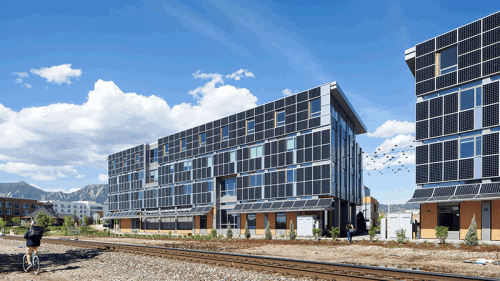ULI MEMBER–ONLY CONTENT: The pandemic has triggered a bigger decline in hotel and resort revenues (measured by revenue per available room, or RevPAR) than the previous five economic crises combined, and as many as two-thirds of hotels in the United States could be in default in the next six months without government support, John Hardy, president and CEO of the Hardy Group, said during a panel on the hotel and resort sector outlook during the 2020 ULI Virtual Fall Meeting. “The state of the industry right now is terrible in most areas . . . it’s hard to put a happy face on it,” said Hardy, who moderated the panel.
The problem is not uniform, however, and Hardy noted that the impact has been very geographically and industry sensitive. Cindy Estis Green, CEO and cofounder of Kalibri Labs, echoed this sentiment, noting that in the second quarter of the year, “the biggest losses in revenue were those that had the largest group in the corporate base: Boston, San Francisco, Orlando, Chicago, D.C.” The strongest markets were all “secondary and tertiary markets with a heavy drive-to base,” she said.
Markets that made up the top 10 in RevPAR—places such as Ocean City, Maryland, and Hilton Head, South Carolina—ended 2019 between 34th and 227th in REvPAR.
However, even the best-performing markets are still “only at roughly 50 percent occupancy,” Green said.
Raj Chandnani, chief development officer of WATG Wimberly Interiors, provided a positive outlook, saying that while some developments had been put on hold, very few have been canceled outright. “We’ve seen green shoots in China . . . likewise for our business in the Middle East, despite the fact that oil prices declined, they missed a beat in terms of their development plans.”
Chandnani also said that many firms have decided to undergo more development to come out ahead when the crisis is over. While many projects “simply don’t have the capital to continue development,” according to Chandnani, the situation has offered larger firms an opportunity to refocus and zero in on their investment thesis, looking to the long term and deciding what markets they want to be in.
Daniel Peek, president of the hotel group for Hodges Ward Elliott, noted that the marketplace is uneven, with “unprecedented levels” of liquidity, but fewer high-quality deals available. “The sheer amount of capital is supporting pricing . . . where we see every transaction getting done, is in the 10 to 15 to 25 percent discount” from pre-COVID levels.” Peek said everyone but real estate investment trusts (REITs) are buyers in the market, especially private-equity funds. This liquidity comes from a vast amount of wealth created in the last 10 years but is also a function of time. “Fund managers were raising their biggest funds as COVID hit or six months prior, and hadn’t allocated it out yet,” Peek noted. About half the transactions he has helped facilitate “have closed all cash, then gone to pursue financing afterwards.”
Hardy also asked the panelists their views on recovery. “You have to look at the demand drivers in that market and you have to understand at a much more granular level than what most people worried about,” Green said. In her opinion, this means a two- to three-year difference in recovery timing, depending on the market.
The consensus was that recovery would arrive by 2023, Peek said. “If you have a convention hotel in one of those big urban markets, that’s probably ’24; some resorts could be ’22 . . . generally RevPAR recovers by ’23.” Green said her firm’s predictive model has Atlanta and Houston as some of the first cities to recover, seeing a normal RevPAR level in late 2023.
Even with the fear of a permanent move to working from home, Peek says he is still “bullish” on the return to work. “Particularly for young people . . . they want to be around each other,” he said. Peek also believes there will be higher turnover with remote work, citing IBM going completely remote recently as an example. He noted that young people lose out on having a mentor in remote-work scenarios. As for places like New York City and San Francisco? “It’s more of a delayed recovery . . . the real question is when do people have confidence to travel to conventions and make a productive business trip?”
As for what changes the sector may see once it does come back, Chandnani said there are few design changes happening with hotels in resorts. “Brands have given a lot of operational strategies in terms of how to deal with this, but not making fundamental changes in terms of design.” Things like Plexiglas at front desks are not a design solution and are not intended to be permanent.
Operationally, there could be big changes, especially when it comes to the use of apps. Chandnani and Green both discussed the opportunity for contactless service for hotels through a brand’s app. “A lot of hotels are looking at lessons from airline businesses, how you can select rooms like a seat, how you can adopt QR codes. There’s a lot of technology coming from it,” Chandnani said. Green added that the data show that contactless technology is driving more visitors.
ULI Virtual Fall Meeting registrants can access an on-demand version of this session. Register for the Virtual Fall Meeting and access all the sessions on-demand.
SEAN WALLISCH is an advertising associate at ULI.


